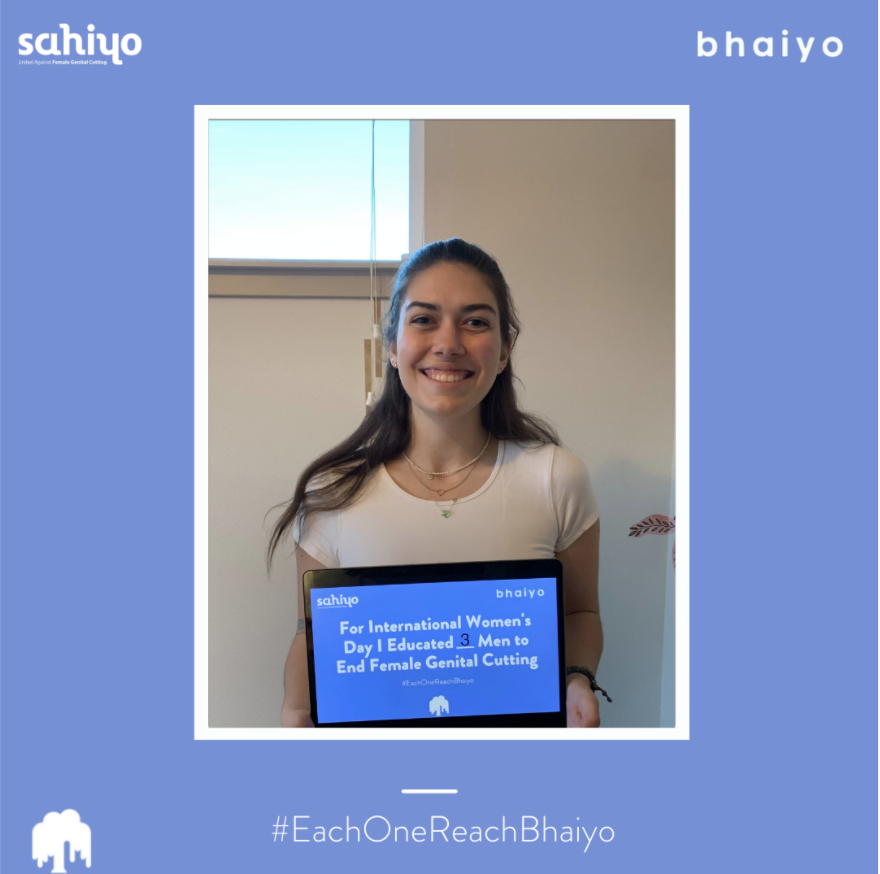By Meg Sinnott
In honor of International Women’s Day on March 8th, Sahiyo launched our campaign “Each One, Reach Bhaiyo.” During this campaign, Sahiyo encouraged community members to reach out to and educate at least one male-identifying person in their life about female genital cutting (FGC). Through this campaign we involved men in the important work of protecting women and girls. We know that just one conversation can spark a global change towards preventing the human rights violation that is FGC amongst future generations. Learn more here.
Why did you want to reach out to a man in your life to discuss FGM/C?
I decided to reach out to a man in my life because I believe that advocacy for FGM/C and other gender-based violence must include men. In order to change cultural and traditional practices, the whole community has to be involved. Additionally, the systems that have supported FGM/C are patriarchal and stem from the control of women's bodies and sexuality. If men uphold those systems and beliefs they are complicit in allowing the practice to continue. I spoke to my dad specifically because while he is a highly educated and intelligent man, he has been somewhat blind to women's struggles when I have brought them up with him in the past.
What was his reaction?
He was very supportive of Sahiyo’s mission upon learning more about the scope of modern-day FGM/C in the Bohra community. As a white atheist, he had some trouble understanding at first why mothers would continue to subject their daughters to FGM/C if they themselves disagreed with it because he has never followed a religious practice. However, after a discussion on the impact of social norms on the actions of individuals, he came to see that FGM/C is a multifaceted issue.
Was he aware of FGM/C?
While he was aware of FGM/C he did not know the different types, nor did he know that it was commonly practiced in communities outside of Africa. Additionally, he was not aware of the reasons that FGM/C was being practiced, nor that it was most commonly done by older women and not medical professionals.
What advice would you give to others trying to reach out to the men in their lives?
I would tell others reaching out to men in their lives that they should not be worried about a negative reaction. Any conversation is important to spreading awareness and bringing an end to FGM/C!

